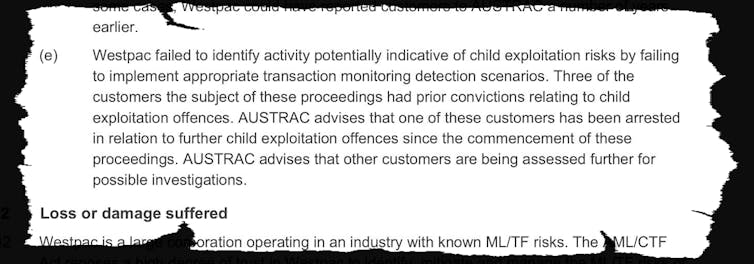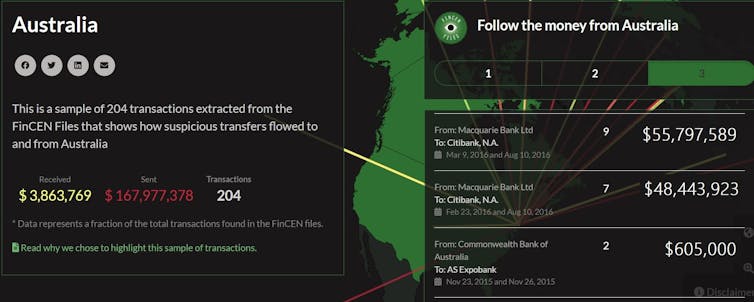Already suppressed Christians say bill is designed to control growth.
THIMPHU, Bhutan, July 21 (CDN) — Christians in this Himalayan nation who are still longing to openly practice their faith were disheartened this month when the government proposed the kind of “anti-conversion” law that other nations have used as a pretext for falsely accusing Christians of “coercion.”
The amendment bill would punish “proselytizing” that “uses coercion or other forms of inducement” – vaguely enough worded, Christians fear, that vigilantes could use it to jail them for following the commands of Christ to feed, clothe and otherwise care for the poor.
“Now, under section 463 [of the Penal Code of Bhutan], a defendant shall be guilty of the offense of proselytization if the defendant uses coercion or other forms of inducement to cause the conversion of a person from one religion or faith to another,” reported the government-run Kuensel newspaper on July 9.
“There was always a virtual anti-conversion law in place, but now it is on paper too,” said a senior pastor from Thimphu on condition of anonymity. “Seemingly it is aimed at controlling the growth of Christianity.”
Kuenlay Tshering, a member of Bhutan’s Parliament and the chairperson of its Legislative Council, told Compass that the new section is consonant with Article 7(4) of the Constitution of the Kingdom of Bhutan, which states, “A Bhutanese citizen shall have the right to freedom of thought, conscience and religion. No person shall be compelled to belong to another faith by means of coercion or inducement.”
He said that the National Council had proposed that offenses under the proposal be classified as misdemeanors, punishable by one to less than three years in prison.
Tshering said that the amendment bill “may be passed during the next session of Parliament, after the National Assembly deliberates on it in the winter session.”
Asked if he was aware that similar “anti-conversion” laws in neighboring India had been misused to harass Christians through vague terms of “inducement,” he said he was not.
Authorities usually act on complaints by local residents against Christian workers, so frivolous complaints can lead to their arrest, said another pastor who requested anonymity.
Of the 683,407 people in Bhutan, over 75 percent are Buddhist, mainly from the west and the east. Hindus, mostly ethnic Nepalese from southern Bhutan, are estimated to be around 22 percent of the population.
There are around 6,000 Christians, mostly ethnic Nepalese, but there is neither a church building nor a registered Christian institution. The Bible, however, has been translated into the national language, Dzongkha, as well as into Nepali.
The constitution guarantees freedom of religion, but the government has not officially recognized the presence of Christians, whose practice of faith remains confined to their homes.
The Drukpa Kagyue school of Mahayana Buddhism is the state religion, with Hinduism dominant in the south, according to Bhutan’s official website, which adds, “Some residues of Bon, animism and shamanism still exist in some pockets of the country,” but makes no mention of Christianity.
Still, since Bhutan became a democracy in 2008 after its first-ever elections – following more than 100 years of absolute monarchy – people have increasingly exercised their freedom, including religious choice.
‘Why More Religions?’
Home and Culture Minister Lyonpo Minjur Dorji told Compass that Bhutan’s government had “no problems” with Christianity or any other faith.
“But Bhutan is a small country, with a little more than 600,000 people, and a majority of them are Buddhist,” Dorji said. “We have Hindus, also mainly in southern parts. So why do we need more religions?”
Buddhism is closely linked with political and social life in Bhutan. Dorji’s office sits in a gigantic monastery in Thimphu known as Tashichho Dzong. Buddhism unites and brings people together, Dorji said, explaining that the social life of a village revolves around its dzong (monastery).
Dorji said India’s multi-religious society had led to tensions and bloodshed.
“India can survive riots and unrest,” he said, “but Bhutan may not, because it is a small country between two giants [India and China].”
With leaders who have been proud that they have not allowed it to be colonized, Bhutan historically has been keenly concerned about its survival. Bhutan’s people see their distinct culture, rather than the military, as having protected the country’s sovereignty. And it is no coincidence that Dorji’s portfolio includes both internal security and preservation of culture.
The constitution, adopted in July 2008, also requires the state to protect Bhutan’s cultural heritage and declares that Buddhism is the spiritual heritage of Bhutan.
A government official who requested anonymity said that, as Tibet went to China and Sikkim became a state in India, “now which of the two countries will get Bhutan?”
This concern is prevalent among the Bhutanese, he added.
Sikkim, now a state in India’s northeast, was a Buddhist kingdom with indigenous Bhotia and Lepcha people groups as its subjects. But Hindus from Nepal migrated to Sikkim for work and gradually outnumbered the local Buddhists. In 1975, a referendum was held to decide if Sikkim, then India’s protectorate, should become an official state of the country. Since over 75 percent of the people in Sikkim were Nepalese – who knew that democracy would mean majority-rule – they voted for its incorporation
into India.
Bhutan and India’s other smaller neighbors saw it as brazen annexation. And it is believed that Sikkim’s “annexation” made Bhutan wary of the influence of India.
In the 1980s, Bhutan’s king began a one-nation-one-people campaign to protect its sovereignty and cultural integrity, which was discriminatory to the ethnic Nepalese, who protested. Their non-compliance, however, resulted in a harsh crackdown by authorities, leading to the expulsion or voluntary migration of over 100,000 ethnic Nepalese, many of whom were Christians, to the Nepal side of the border in Jhapa in the early 1990s.
“Bhutan did not want to become another Sikkim,” said a local resident, explaining why the government did not tolerate the protests.
Bhutan is also rigorous in implementing its laws related to the use of the national language, the national dress code and the uniform architectural standards throughout the country to strengthen its cultural integrity. Bhutanese men are required to wear the gho, a knee-length robe tied at the waist by a cloth belt, when they go to work or attend a public function. Women have to wear the kira, an ankle-length dress clipped at one shoulder and tied at the waist. Non-compliance can lead to fine
and imprisonment.
Brighter Future
One hopeful pastor said he expects the government to officially acknowledge the existence of Christianity in Bhutan in the near future.
“Religious freedom will be good for both Christians and the government,” he said. “If Christians are not officially acknowledged, who will the government go to if it wants to implement an executive decision related to religious communities?”
Explaining the reason for his hope, he recalled an incident in the Punakha area in January, when a house under construction was demolished after rumors that it was used as a church.
“The house owner, a Christian, went to his majesty [King Jigme Khesar Namgyel Wangchuck] and told him he was not constructing a church but would have worship with other believers on Sundays,” the pastor said. “The king allowed him to build the house.”
He also said that a delegation of Christians met with Prime Minister Lyonchen Jigmey Thinley in May 2009, who reassured them that there would be more freedom soon.
Christianity is gradually growing, but through word-of-mouth – testimonies of those who have received healing from sickness – and not public preaching, he said, adding that Christians needed to understand and be patient with the government, “which cannot and should not make changes or give freedom overnight.”
SIDEBAR
Christians’ Skulls, Bones Used for Buddhist Ritual
The ambiguity in Bhutan over the status of Christians has brought with it a new difficulty: A national daily recently reported that at least eight graves of Christians had been exhumed and the skulls and thigh bones extracted for a Buddhist ritual.
Although the report marked the first time the practice had made the news, Christian leaders said more than 100 graves have been dug up as the trade in human bones has been going on for more than five years.
A local resident of the Lamperi area, near Thimphu, identified as Namgay, told the Bhutan Observer that he found eight graves in a “secret forest graveyard” that had been exhumed by hunters of craniums and thigh bone.
“We saw skulls without craniums and a hand sticking out of a grave,” he was quoted as saying in the daily on May 27.
A human skull garners between 5,000 ngultrum (US$105) and 10,000 ngultrum (US$211) in Bhutan, with men’s skulls considered more valuable. The skull of a man affected by leprosy is not considered ideal for purification. Rather, such skulls are considered best for rituals to subdue evil spirits.
In a visit to the graveyard, the Bhutan Observer found at least eight graves freshly dug up. “Hand gloves, khaddar [a coarse homespun cotton cloth], a currency note, a wooden cross, and a wooden hammer lay scattered all over,” it reported.
The daily said the graveyard apparently belonged to the Christian community in Thimphu and nearby areas.
“Christians in the country say that there should be an official recognition that there are Christians in the country, and other things like burial rights will naturally follow,” the report noted.
A local pastor told Compass that since Christians did not have a burial ground, they buried their dead in forests.
“More than 100 bodies have been dug up, even though we have changed several locations for burial,” he said. “I wonder how the traders in human bones discover these locations. Where do we go now?”
Some local residents reportedly believe that a Christian grave brings bad luck.
Damcho Wangchu, a resident of Thinleygang area, told the daily that the area surrounding the graveyard was holy. He attributed all misfortune in the area – including storms, the death of three students and of four others – to the Christian cemetery.
“We never experienced such misfortunes in our gewog [cluster of villages] before,” he said.
The daily explained that the tradition of use of human skulls and thigh bones in Buddhist rituals was as old as Tantric Buddhism itself. “Thoepai Dagpa is a generic name for the text that illustrates the use and study of quality of skulls,” it reported.
Tantric Buddhism, widespread in Bhutan, involves rituals as a substitute or alternative for the earlier abstract meditations.
An editorial in the same newspaper noted, “Our hunt for the criminal will probably lead us from the unplanned graveyard to the sacred altar.”
Report from Compass Direct News



![]()

You must be logged in to post a comment.